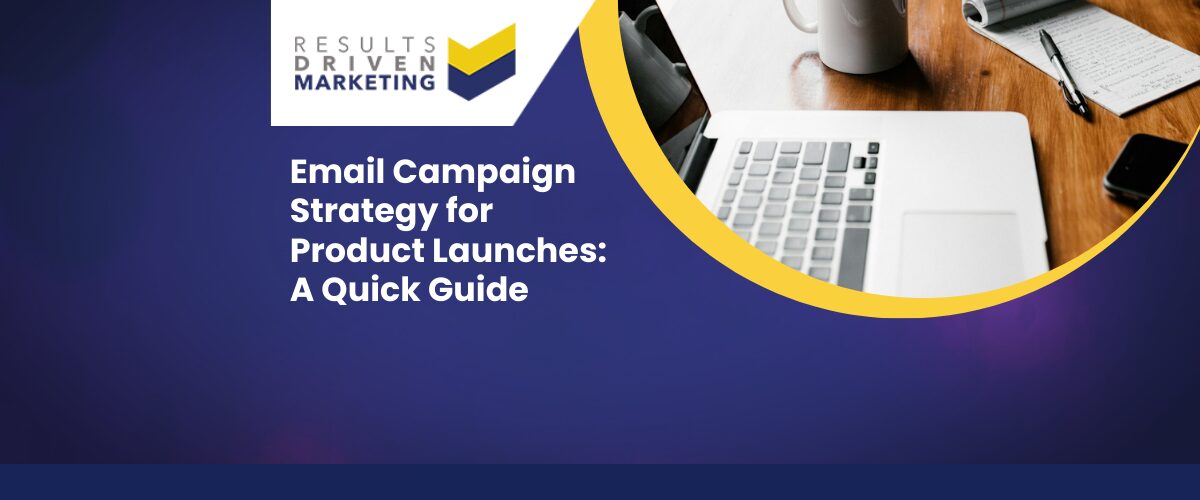
Business Lead Management
In the dynamic world of business lead management, understanding the nuances is paramount to success. This intricate dance between businesses and potential customers is more than just a strategy; it’s an art form.
As we delve deeper into this topic, we’ll uncover the layers that make lead management an essential component of modern business operations. From nurturing potential leads to converting them into loyal customers, effective lead management can be the catalyst that propels a business to new heights. Join us as we embark on this enlightening journey, exploring the intricacies and best practices of business lead management.
Table of contents:
What is business lead management?
Lead management, in its simplest form, is the process of tracking and managing prospective customers. Think of it as the art of nurturing and converting potential leads into loyal clients.
But, of course, it’s not just about collecting names and numbers. It’s about understanding these individuals, their needs, and how your business can cater to them.
Definition: Business Lead Management
At its core, lead management is the systematic process of capturing, sorting, and nurturing leads, ensuring that potential customers are guided through the sales funnel effectively. It’s like having a well-oiled machine, where every part plays a crucial role in driving the entire system forward.
Why Efficient Lead Management is Important for Online Businesses
In today’s digital age, where everything seems to be moving at the speed of light, online businesses can’t afford to be lax. Efficient lead management is the backbone of a thriving online business.
It’s the difference between having a pool of potential customers and actually converting them. After all, what’s the point of attracting leads if you can’t manage them effectively?
The basics of business lead management
Lead management isn’t just a fancy term thrown around in board meetings. It’s a structured approach that involves:
- Capturing leads from various sources, be it online campaigns, social media, or even offline events.
- Sorting and scoring these leads based on their potential value to the business.
- Nurturing them through tailored content and interactions.
- And finally, converting these nurtured leads into paying customers.
The Significance of Business Lead Management
Why is lead management important?
Lead management is like the heartbeat of a business’s sales and marketing efforts. Without it, efforts can become disjointed, potential customers can slip through the cracks, and opportunities can be lost. Here’s why it’s such a big deal:
Benefits of business lead management
- Efficiency: Streamlining the process means no lead is left behind.
- Increased Sales: With a structured approach, conversion rates naturally soar.
- Better ROI: Every penny spent on marketing efforts can be tracked, ensuring you get the most bang for your buck.
- Improved Customer Relationships: By understanding and catering to leads, businesses can build stronger, more meaningful relationships.
Why are Business Leads Important?
In the grand scheme of things, business leads are the lifeblood of any company. They represent potential growth, potential sales, and potential long-term customers.
Managing these leads effectively ensures that businesses don’t just survive but thrive in today’s competitive landscape. After all, in the world of business, it’s not just about attracting attention; it’s about holding onto it and turning it into tangible results.
The Comprehensive Process of Business Lead Management
Dive deep into the world of business lead management, and you’ll find it’s not just about collecting names and numbers. No, it’s a comprehensive, step-by-step process that ensures every potential lead is treated like gold. Let’s embark on this journey, breaking down each step to truly understand the magic behind effective lead management.
Managing leads in 9 steps
Ah, the intricate dance of managing leads. It’s a process that, when done right, can propel a business to new heights. Let’s delve into these nine pivotal steps, shall we?
- Lead Generation: This is where it all begins. It’s the art of attracting potential customers to your business. Whether through online campaigns, social media, or traditional marketing methods, this step is all about casting the net wide and capturing interest.
- Customer Inquiry: Once you’ve piqued their interest, potential customers will naturally have questions. This step involves fielding those inquiries, be they calls, emails, or even social media messages.
- Identity Capture: Now, this is crucial. Once a potential lead shows interest, you’ll want to capture their details. This could be as simple as a name and email or more detailed information depending on your business needs.
- Inquiry Filtering: Not all inquiries are created equal. Some might be genuine leads, while others could be mere inquiries without purchase intent. Filtering ensures you focus your energy on the most promising leads.
- Lead Grading: Think of this as sorting the wheat from the chaff. By grading leads based on criteria like purchase intent, budget, or fit with your product/service, you can prioritise your efforts.
- Lead Distribution: Once sorted and graded, leads need to be distributed to the right team or individual. This ensures that the most suitable person handles each lead, increasing the chances of conversion.
- Sales Contact: This is where the rubber meets the road. The sales team reaches out to the lead, addressing their needs, answering questions, and ideally, sealing the deal.
- Lead Nurturing: Not every lead will convert immediately. Some need a little nurturing – regular follow-ups, tailored content, or special offers – to guide them down the sales funnel.
- Sales Result: The culmination of all the hard work. This step involves tracking the outcome of the sales process. Did the lead convert? If not, why? This feedback is invaluable for refining and improving the business lead management process.
How to manage leads: A step-by-step guide
Ah, the art of managing leads. It’s not just about collecting names and numbers, but rather, it’s a meticulous dance that requires precision, strategy, and a touch of finesse.
Let’s embark on this enlightening journey, breaking down each step to truly grasp the essence of effective business lead management.
Step 1: Capture the lead:
Dive right in by capturing the initial interest of potential customers. Whether it’s through an online form, a phone call, or an in-person interaction, this step is all about getting those essential details. Remember, every lead is a potential goldmine.
Step 2: Track the source:
Knowing where your leads are coming from is crucial. Is it from that Facebook ad campaign? Or perhaps that trade show you attended last month? By tracking the source, you can refine your marketing strategies and focus on what truly works.
Step 3: Score the lead:
Not all leads are created equal. By scoring them based on criteria like purchase intent, interaction history, or even their budget, you can prioritise your efforts on the most promising ones.
Step 4: Nurture the lead:
Some leads might not be ready to convert immediately. And that’s okay. This step is all about building that relationship, sending them tailored content, and gently guiding them down the sales funnel.
Step 5: Assign the lead:
Once nurtured, it’s time to get them in the hands of the right team or individual. This ensures that the most suitable person handles each lead, increasing the chances of conversion.
Step 6: Convert the lead:
This is where the magic happens. Engage, answer their queries, address their concerns, and seal the deal. Remember, every conversion is a testament to the effectiveness of your business lead management process.
Step 7: Evaluate and adjust:
The world of business is ever evolving. Regularly evaluate your lead management process, see what’s working, what’s not, and adjust accordingly. Continuous improvement is the name of the game.
Best Practices in Business Lead Management
Navigating the waters of lead management can be tricky, but with the right practices in place, it becomes a smooth sail. Let’s delve into the best practices that can elevate your business lead management game.
Lead management best practices
- The lead management process: At its core, lead management is about understanding the journey of a lead. From the moment they show interest to the point they convert, every interaction matters. Ensure you have a clear process in place that captures, nurtures, and converts leads effectively.
- Regular follow-ups: Don’t let potential leads slip through the cracks. Regular follow-ups, be it through emails, calls, or even personalised content, can keep the lead engaged and interested.
- Use of technology: In this digital age, leveraging technology can give you an edge. Use CRM systems, lead tracking software, and analytics tools to streamline your lead management process.
- Training and development: Ensure your team is well-equipped to handle leads. Regular training sessions, workshops, and even role-playing can help them hone their skills.
- Feedback loop: Always be open to feedback. Whether it’s from your team, the leads themselves, or even industry peers, feedback can provide invaluable insights to refine your lead management process.
Strategies to Get Business Leads
Ah, the quest for business leads. It’s a journey every business embarks on, but the path isn’t always clear. Fear not, for we’re about to unravel the strategies that can pave the way to a treasure trove of leads. And if you’re in the education industry, well, you’re in for a treat.
How to Get Business Leads in the Education Industry?
The education sector is brimming with potential, but how do you tap into it? Let’s dive deep and explore the avenues that can lead you to the heart of your target audience.
- Search Engine Optimisation (SEO): Think of SEO as the compass that points potential leads to your educational offerings. By optimising your website and content for search engines, you’re essentially putting up a bright neon sign that says, “Hey, we’re right here!”
- Content Marketing: Ah, the art of storytelling. By crafting compelling content that resonates with your audience, you’re not just informing them; you’re building a relationship. Blogs, articles, e-books – the possibilities are endless.
- Social Media Marketing: The digital playground where everyone hangs out. Engage with potential leads, share your educational content, and create a community that thrives on knowledge.
- Email Marketing: Think of it as sending out golden tickets to a select audience. Tailored, personalized, and direct – email marketing can be a powerful tool in your business lead management arsenal.
- Webinars and Events: The stage is set; the audience is waiting. Host informative webinars or events that showcase your educational prowess and watch as the leads come pouring in.
- Referral Marketing: Word of mouth, but supercharged. Encourage your existing students or clients to refer others and reward them for it. It’s a win-win.
Advantages and Disadvantages
Every coin has two sides, and business lead management is no exception. Let’s weigh the pros and cons, shall we?
What are the advantages of business lead management?
- Streamlined Process: With effective business lead management, you’re not just shooting in the dark. Every step, every strategy is optimised for maximum impact.
- Higher Conversion Rates: By targeting the right audience with the right message, you increase the chances of turning a lead into a loyal customer.
- Efficient Resource Utilisation: No more wasting time and resources on leads that don’t convert. Focus on what truly matters.
- Data-Driven Insights: Understand your audience better, refine your strategies, and continuously improve.
What are the disadvantages of business lead management?
- Requires Investment: Whether it’s in terms of time, money, or resources, effective business lead management isn’t free.
- Complexity: With multiple channels, strategies, and tools, it can get overwhelming.
- Not a One-Size-Fits-All: What works for one business might not work for another. It requires constant tweaking and testing.
- High Expectations: With great power comes great responsibility. Effective business lead management can set high expectations, and not meeting them can lead to disappointment.
Is a business lead management a good idea?
Absolutely, and here’s why. Business lead management isn’t just about collecting leads; it’s about nurturing them, understanding them, and guiding them through the buyer’s journey. It’s like having a GPS for your business, directing you to the right audience, at the right time, with the right message. But, like any strategy, it’s essential to weigh the pros and cons, understand the intricacies, and ensure it aligns with your business goals.
What are the key considerations of business lead management?
- Audience Understanding: Who are you targeting? What are their pain points? The better you understand your audience, the more effective your lead management will be.
- Integration with Other Tools: Your CRM, email marketing software, analytics – everything needs to work in harmony.
- Continuous Monitoring and Optimisation: The digital landscape is ever evolving. Regularly review and tweak your strategies for maximum impact.
- Training and Skill Development: Ensure your team is well-equipped to handle the tools and strategies associated with lead management.
What are the alternatives to business lead management?
While business lead management is a gem, there are other jewels in the treasure chest:
- Direct Marketing: Reaching out to potential customers directly, be it through mail, phone, or even in-person.
- Affiliate Marketing: Collaborating with partners to promote your products or services in exchange for a commission.
- Influencer Marketing: Leveraging the reach and influence of individuals with a significant online presence.
- Organic Growth Strategies: Focusing on SEO, content marketing, and organic social media strategies.
FAQ
How can businesses ensure the accuracy of their lead management strategies?
By continuously monitoring, analysing, and refining. Use analytics tools to track performance, conduct regular audits, and always be on the lookout for areas of improvement.
Are there regulations governing the use of content for lead management?
Yes, especially when it comes to data protection and privacy. Regulations like GDPR in Europe and CCPA in California ensure that businesses handle customer data responsibly.
How often should businesses update their lead management strategies?
At least once a quarter. However, it’s a good practice to review monthly and make tweaks based on performance metrics.
What tools can help in optimising content for lead management?
Tools like HubSpot, Salesforce, Marketo, and Google Analytics can provide invaluable insights and optimisation capabilities.
How do different content types compare in terms of lead management efficacy?
It varies based on the target audience. While blog posts and articles might work wonders for B2B businesses, videos and infographics might be more effective for B2C. It’s all about understanding your audience and testing different content types.
Conclusion
Navigating the intricate dance of lead generation is merely the first step; managing those leads effectively is where the true art of business unfolds. As we’ve delved into throughout this article, business lead management isn’t just a process—it’s a strategic approach to transforming potential interest into tangible profit. Proper lead management transcends the mere collection of contacts, it fosters relationships, nurtures potential clients, and meticulously guides them down the sales funnel.
In today’s dynamic business landscape, where every interaction counts, mastering the nuances of lead management can be the defining factor between a flourishing business and a faltering one. As the business world continues its rapid evolution, those who prioritise and refine their lead management practices will not only stay ahead but also ensure that every opportunity is capitalised upon.
Who are we?
Providing b2b database solutions is our passion.
Offering a consultancy service prior to purchase, our advisors always aim to supply a database that meets your specific marketing needs, exactly.
We also supply email marketing solutions with our email marketing platform.
We have the best data of email lists for your networking solutions as well as direct mailing lists & telemarketing lists
A good quality b2b database is the heartbeat of any direct marketing campaign…
It makes sense to ensure you have access to the best!
Call us today on 0191 406 6399 to discuss your specific needs.
Results Driven Marketing
0191 406 6399





